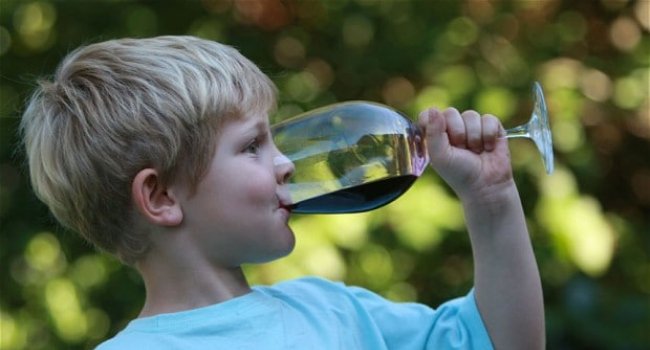One in six parents allow their children to drink alcohol by the age of 14, with potentially dire future consequences, according to a new study.
As The Guardian reports, the researchers, from the Centre for Longitudinal Studies at the UCL Institute of Education, and Pennsylvania State University, suggest that many parents are offering their children alcohol at an early age to teach them to drink responsibly.
With Christmas approaching, and wine more likely to be shared at the dinner table, they say parents should heed the message from previous studies that children who start drinking early are more likely to fail at school, have behavioural difficulties and suffer alcohol problems in adulthood.
The analysis of 10,000 children born in the UK at the turn of the century, which is part of the Millennium Cohort Study, found that well educated parents of white children were most likely to allow their children to drink at 14.
The researchers examined reports of parents’ drinking habits and attitudes to drinking, linking them to information on family structure, employment status and parents’ educational attainment.
The authors conclude: “While social disadvantage predicts many long-term health problems, parents of socially advantaged children appear to view alcohol use as less risky.”
The results, published on Friday, also showed that fathers and mothers who were light or moderate drinkers were just as likely to let their children drink as those who drank heavily. However, parents who abstained from alcohol tended not to allow their children to drink.
By age 14, almost half the children said they had tried more than a few sips of alcohol but three years earlier only about one in seven had done so.
The proportion of children choosing to drink alcohol is at the lowest level in recent times, with only about one in six aged eight to 15 admitting to ever drinking alcohol.
Dr John Larsen, director of evidence and impact at Drinkaware, said children should not drink but parents should give advice to teenagers about alcohol and its effects. He encouraged them to keep the conversations “open and honest”.












